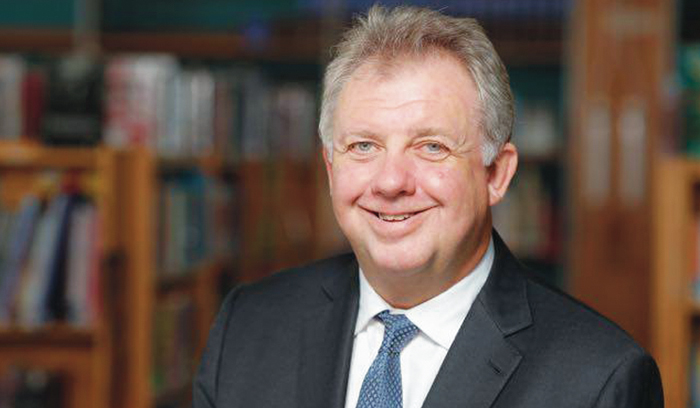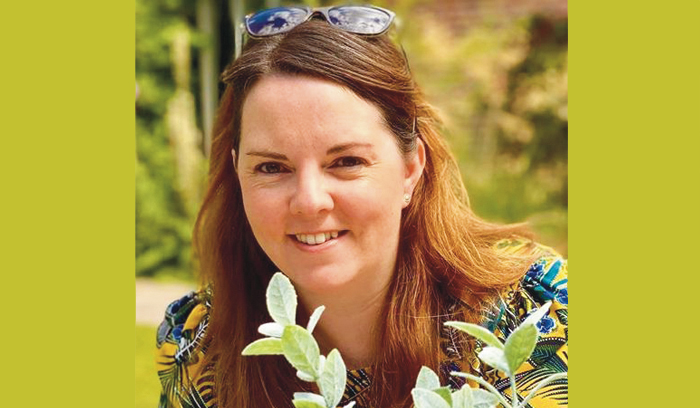High risk stakes
While drugs and alcohol addiction are widely recognised as driving offending, evidence suggests equal attention needs to be given to problem gambling and its links to crime.
The UK has one of the biggest gambling markets in the world, generating a profit of £14.2 billion in 2020, yet evidence suggests gambling harms are currently under-recognised across the criminal justice system (CJS).
GamCare, the gambling support service, says there are “recognised links between harmful gambling and crime, whether crime is committed to support gambling or to pay off gambling-related debts”. Gambling-related offending may include fraud, theft, domestic and financial abuse, and links into wider criminality. However, GamCare says there is a lack of funding, awareness, training and pathways to support and treatment for people in the CJS experiencing gambling harms.
At the end of last month, Public Health England (PHE) published evidence showing criminal activity linked to problem gambling is worth an estimated £162 million a year, and could be considerably higher.
Rosanna O’Connor, director of alcohol, drugs, tobacco and justice at PHE, said the evidence is clear: “Harmful gambling is a public health issue and needs addressing on many fronts, with an emphasis on preventing these harms from occurring as well as with help readily accessible for those directly and indirectly affected by the wide ranging and long lasting negative impacts of gambling.”
The Association of Police and Crime Commissioners (APCC), which has just relaunched its addictions and substance misuse portfolio, believes there needs to be greater recognition of the role gambling addiction plays in driving offending, and better training for police to spot the signs of gambling problems in custody suites.
The problem, however, is a “dearth of knowledge worldwide” about the links between crime and problem gambling, according to the Commission on Crime and Problem Gambling, launched by the Howard League for Penal Reform in June 2019.
A review published last year found that while millions of people are affected by gambling, either directly or indirectly, there appear to be fewer than 50 peer-reviewed papers in the past 25 years that address the links between problem gambling and crime specifically.
In response, the Commission launched its own three-stage research project, exploring the prevalence of gambling-related crime, the lived experience of people caught up in the system and the sentencers’ awareness of the issue.
The literature review into the first stage, written by Sarah Ramanauskas, senior partner at Gambling Integrity, who sits on the Commission, found “high prevalence rates of people committing crimes to fund their gambling”. These were not just ‘white collar’ crimes such as theft and fraud, but also offences that occur in public spaces such as street robbery. There was also significant evidence of domestic abuse and child neglect linked to problem and pathological gambling.
Studies have indicated that the more complex, prolonged and persistent a gambling problem is, the more likely it is that a crime will be committed and, indeed, that many crimes may result.
Although there has been a growing understanding that gambling addiction is a behavioural disorder, the Commission says little of this has been translated to sentencing; problem gambling is not considered to be a mitigating factor in sentencing in the way mental health problems or drug and alcohol addiction are.
And while evidence suggests gambling is a part of “prison sub-culture”, the Commission says research shows prisons offer only limited treatment.
It added that several of the studies reviewed agreed that a custodial sentence, especially when no treatment is available for gambling addiction, “was not a cost-effective way of avoiding further harm to the individual or society once the sentence is completed”.
GamCare says studies have found that prison populations are more vulnerable than the general population to problem and disordered gambling.
One of the three key objectives of the UK Gambling Act 2005 relates to crime – preventing gambling from being a source of crime or disorder, being associated with crime or disorder or being used to support crime.
“Despite being prohibited, gambling is a part of prison sub-culture,” says GamCare. “The consequences of gambling within prisons can be severe, yet gambling problems among prisoners largely go unrecognised and untreated.
“It is, therefore, important that those who work within prisons and probation services are aware, not only of the prevalence and nature of gambling within the CJS, and the links between crime and gambling, but also the implications of a lack of accessible support or treatment options for those affected by crime and gambling problems, or those at risk of gambling-related harms.”
“Policing has learnt a lot more in recent years about the links between problem gambling and gambling-related harms, and the links to organised crime, in particular, money laundering, theft and fraud”
A small number of specialised gambling courts have been established in the US, with the aim of ensuring that people with gambling addictions who are in trouble with the law receive appropriate treatment.
This work in the US led to the Gambling Commission beginning a similar scoping exercise with Cheshire Constabulary to develop a custody suite gambling screening programme, which has now been running for a number of years. The programme has since been used in the Lancashire, Merseyside, West Midlands, Cumbria and Manchester police force areas, and according to Cheshire Constabulary Assistant Chief Constable Matthew Burton, the National Police Chiefs’ Council lead on gambling and criminality, relevant liaison and diversion services are now in place in 16 force areas.
The Gambling Commission will now work with police forces to develop a model that will be suitable for roll-out nationally.
The project aims to establish a uniform process of awareness raising and screening for problem gambling across custody suites and the wider CJS.
This will include training sessions with police and a wide variety of criminal justice professionals utilising the new ‘Bet You Can Help’ Royal Society for Public Health (RSPH) Level 2 Ofqual-regulated qualification in Tackling Gambling-Related Harm.
Free for those working within criminal justice, the course provides candidates with an understanding of the nature, concepts and impacts of harmful gambling and gambling-related harm. It enables them to identify and to signpost affected individuals to sources of reliable information, advice, guidance and support through services delivered via the National Gambling Treatment Service.
A recent online conference – A Collaborative Approach to Tackling Gambling Harms across the Criminal Justice System – identified “a clear need for standardised public health messaging, education and screening” to address the problem. Organised by Ara Recovery for All, in association with Cheshire Constabulary, the charity Beacon Counselling Trust, The Howard League for Penal Reform, RCA Trust, Gambling Research Exchange Ontario and the RSPH, it explored the “significant public health issues” of gambling-related harms in Great Britain and the links between criminality and gambling.
In a recorded address at the conference, Mr Burton explained how policing had “learnt a lot more” in recent years about the links between problem gambling and gambling-related harms, and the links to organised crime, “in particular, money laundering, theft and fraud”.
The screening programme at Cheshire Constabulary ran parallel to the criminal justice process and complemented other addictions such as drugs and alcohol, while its work with the Howard League for Penal Reform, Beacon Counselling Trust and Staffordshire University had provided a “really strong evidence base on what works”, said Mr Burton.
Lord Goldsmith QC, chair of the Commission on Crime and Problem Gambling, says it will be building on work already being done in Cheshire to get a better understanding of the scale of the problem, by surveying people who have been arrested.
“Not only would it tell us more about the number of people with gambling issues who get into trouble; it would give us insight into the types of offences that bring them to the attention of the police,” he said.

The APCC says while government plans to expand drug testing on arrest, and alcohol tagging on prison release, to prevent reoffending, are welcome, gambling addiction where it is a driver of crimes also needs to be addressed.
Dorset police and crime commissioner (PCC) David Sidwick, the APCC’s joint lead on addictions and substance misuse, said: “Police enforcement is only part of the picture to tackle addiction-related crime. Testing shoplifters and burglars for drugs when they are taken into custody means police can identify people who would benefit from drug awareness courses and treatment as part of their rehabilitation.
“And where alcohol absence orders form part of a sentencing, greater use of alcohol monitoring tags ensures those orders are compiled with. These measures help breaks the cycle of reoffending and make communities safer.”
But he also wants to see greater recognition of the role gambling addiction plays in driving offending.
The joint portfolio lead, Durham PCC Joy Allen, said: “PCCs have for a long time and quite rightly shown great interest in drugs and alcohol, but I am also keen to work with colleagues to look at how we can also tackle problem gambling.
“Adult gambling is not a crime, and many people are able to enjoy gambling safely. But just like alcohol it can be highly addictive and dangerous. People may resort to burglary or theft to feed their addiction. Money worries can lead to domestic violence and abuse. If debt spirals, loan sharks and other manipulative people can blackmail or coerce vulnerable addicts into other criminal activity.
“We need to address gambling addiction where it is a driver of these crimes. We need better awareness of gambling harms, effective screening that can identify offenders with gambling problems in custody suites, training for custody officers and others and an effective response centred around evidence-based solutions.
“We also need to ensure gambling companies are playing their part in dealing with the consequences of problem gambling, for example by returning money to victims of theft.”
Mr Sidwick added: “The PHE report enabled us to see the scope of the issues around gambling-related harms for the first time, and also how those issues are intrinsically linked to other harms like drugs and alcohol. What is needed now is a joined-up, health-based response to all these issues.
“As elected leaders with the power to bring local agencies together, PCCs have a key role in tackling addiction – whether that’s drugs, alcohol or problem gambling – and the crime that they can cause.”
“There are established links between gambling and crime, whether crime is committed to support gambling or to pay off gambling-related debts”
GamCare recently delivered a two-year pilot project funded by the Hertfordshire PCC to introduce screening for gambling harms at key points across the CJS, and identify the best mechanisms to deliver support for those affected.
The Hertfordshire Problem Gambling Programme identified opportunities where problem gambling could be recognised and specialist support offered to people in contact with the CJS – from arrest through to probation – to reduce the impact on both the system and for individual offenders, victims and families.
The project included staff training, resources development, a screening tool, and resettlement clinics and in-cell access to support for prisoners at HMP The Mount.
Despite being impacted by Covid-19, the project delivered training to 500 workers across the CJS in Hertfordshire, helping them to identify gambling harms and refer to specialist support provided by GamCare. Screening for gambling harms was introduced at 14 key points across the system – from police custody suites to prisons and probation services – and a dedicated treatment practitioner for those in contact with the CJS is now available.
GamCare also provided an in-cell activity pack, designed to boost wellbeing and raise awareness of gambling harms, to more than 1,000 men in HMP The Mount, with prisoners confined to cells for extended periods of time during the pandemic.
Anna Hemmings, chief executive officer at GamCare, says: “There are established links between gambling and crime, whether crime is committed to support gambling or to pay off gambling-related debts, and research has also found that prison populations are more vulnerable to disordered gambling.
“Our work focuses on a ‘whole systems’ approach – with initiatives to screen people at arrest and the early stages of the CJS, and responding to needs at various stages in their journey, be it through police, prison, or probation services.
“We’re grateful to the Hertfordshire PCC for supporting this pilot across the county. We’ve demonstrated that this work is scalable and can have positive impacts for those harmed by gambling across the CJS.”
Julia Fazackerley, head of development at GamCare, said recent work has involved building relationships from the ground up and raising awareness about gambling harms.
“Existing data from our helpline and treatment services shows us that around five per cent of referrals across Great Britain are from people in touch with the CJS, but we know that criminality often goes unreported or undisclosed,” she said.
“While many police, prison and probation staff know anecdotally about the link between gambling and crime, there are very few structures in place to help assess or address this, and we’re focused on changing that.
“We will continue to emulate the good practice developed through our Hertfordshire project nationally, and will continue to deliver training to CJS staff alongside developing pathways to our support and treatment and bespoke resources.”
Hertfordshire’s PCC David Lloyd, who provided funding of more than £90,000 for the two-year project, said for some people gambling harm can be as much a driver of crime as drugs.
“I supported this project in an effort to reduce the impact on the police and CJS for individual offenders, victims, and their families. By working with offenders and partner agencies we are able to steer people away from committing crime in our communities. I am glad it has been a success.”
GamCare has secured funding, approved by the Gambling Commission, to deliver a larger programme of engagement and awareness raising, designed to raise the profile of gambling and offending, and to improve services for those in contact with the CJS.
Lord Goldsmith said concern about harmful gambling activity has been growing for some time.
Commenting on the first stage review into gambling harms by the Commission on Crime and Problem Gambling, which covered jurisdictions in the UK, Australasia, the US, Canada, Germany and Scandinavia, he explained: “From people getting into debt and defrauding family members or employers, to domestic violence and other crimes relating to gambling-related stress, we know anecdotally that police stations, courts and prisons see significant numbers of cases. But the criminal justice system itself does very little work to capture the scale of the challenge and even less in terms of offering interventions like those we see for alcohol or drug problems. This has to change.
“Research is needed into the potential effect of gambling addiction treatment on the rate of recidivism, as well as more general research on how best to help vulnerable populations avoid the criminal justice system.”
Exploring people’s experience of crime and problem gambling

A recent study focusing on the UK suggests that over their lifetime, problem gamblers are 4.4 times more likely to serve a prison sentence compared with the average member of the population.
Now, a new study will explore the complex interplay between crime and problem gambling through in-depth qualitative research about people’s ‘lived’ experiences.
Dr Lauren Smith, Lecturer in Psychology at the University of Lincoln’s College of Social Science, was commissioned to conduct the research project in collaboration with Howard League for Penal Reform.
For this research, she has conducted interviews with 18 people who have experienced gambling addiction and consequently committed crime, along with four family members (‘affected others’).
The research examined the pathways from gambling addiction to the commission of offences and the experiences of people throughout the criminal justice system.
Dr Smith explained: “People who were interviewed had engaged in various types of gambling and the increased availability of online gambling over the past 20 years had been an important factor for many.
“Pathways leading into gambling addiction and the commission of offences were unique to each individual but often involved gambling normalisation from a young age. Sometimes significant transitions such as starting university or a new job were also factors, as was gambling as a form of escapism or trying to cope with problems.
“The majority of people interviewed had committed financial crimes against an employer. The harms associated with gambling addiction including significant detrimental impact on mental and physical health, family and relationships, finances, accommodation and employment were further exacerbated through the commission of a crime and subsequent contact with the criminal justice system. Pervasively, participants reported a lack of awareness and support across each stage of the system.
“Police, while not unsympathetic, were often unaware of the need and how to offer signposting and support people. This tended to be accompanied by a lack of availability of solicitors with any specialist knowledge of gambling addiction.
“Engagement with the police, often as a result of the person handing themselves in, was frequently followed by long periods of time on bail, with little communication. For some, this provided an opportunity to start to address their addiction, through self-referral into support and treatment, but for many, it led to a distressing period of being in limbo, awaiting a court case.
“This was usually followed by a lack of awareness and available support within the court setting, within prisons and on probation, and accompanied by a lack of support to family members who also suffered significant impacts.”
A full report of the findings will be published by The Howard League later this year and will include a series of recommendations.




